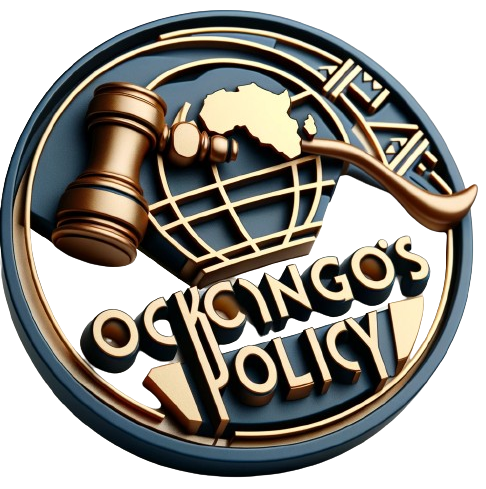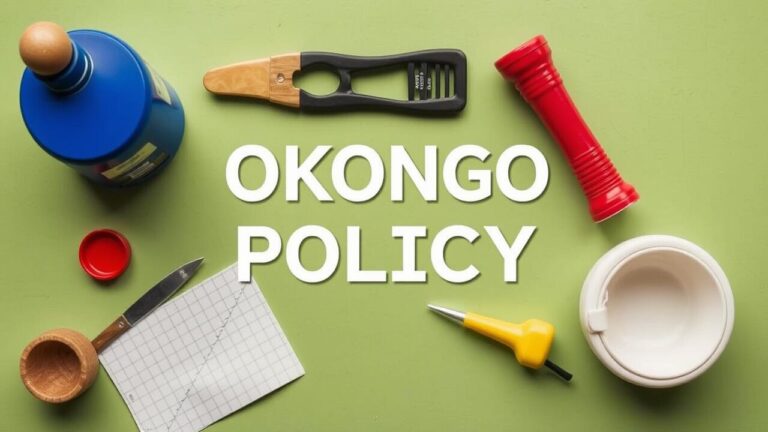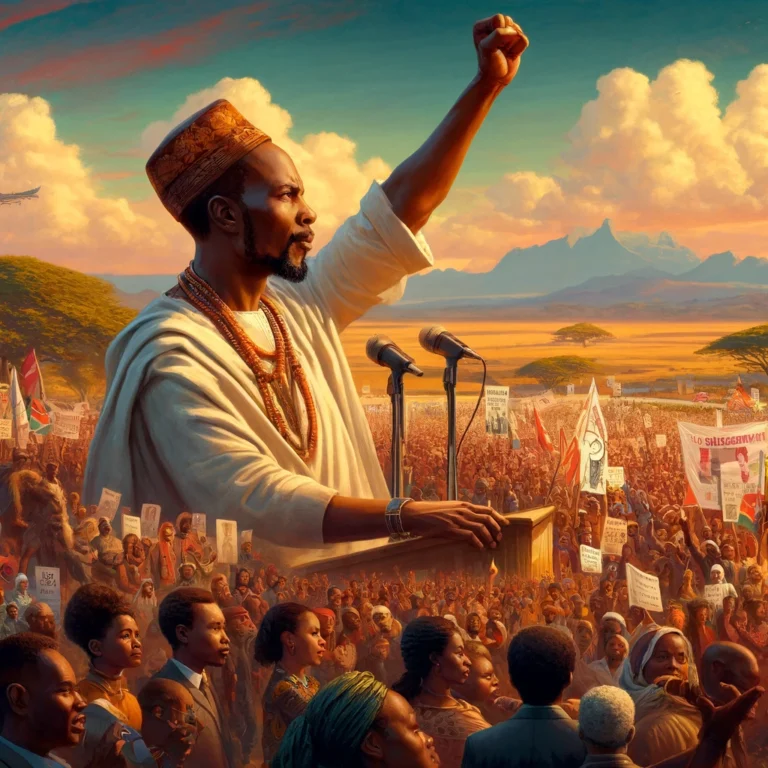In-Depth Analysis of Contemporary African Policies and Their Impacts
Health policies throughout Africa are now under an intensified magnifying glass, all thanks to the upheaval wrought by global health crises like the COVID-19 pandemic. Nations have found themselves in a whirlwind of reassessment, compelled to rethink their health frameworks in response to these newfound realities. The hurdles? Oh, they’re numerous—think inadequate infrastructure, resource scarcity, and a patchwork quilt of healthcare accessibility that complicates effective responses. In this climate of urgency, many countries are setting their sights on bolstering primary healthcare systems as a bulwark against future health calamities.
But wait—amidst this chaos springs forth innovation! Fresh strategies are bubbling up with gusto aimed at reinforcing health systems across the continent. Collaborations with international organizations and non-governmental entities emerge as linchpins in this endeavor; these alliances hone in on capacity building and improving healthcare delivery while also throwing investment into technology for smoother service operations. And let’s not overlook the rising tide of preventative care initiatives and community engagement efforts—they’re gaining traction fast! These movements strive to empower local populations, aiming to lighten the load on overstretched healthcare facilities while fostering resilience within communities themselves.
Strategies for Strengthening Health Systems
A kaleidoscopic approach is vital for revitalizing health systems throughout the African landscape. At the forefront lies the imperative to bolster infrastructure—an urgent call for investment in constructing and modernizing healthcare facilities that can stand tall against the tides of need. Yet, just as crucial is nurturing a proficient workforce; this demands an unwavering commitment to training and retaining talented healthcare professionals who are ready to face daunting challenges.
Moreover, technology emerges as a linchpin in this intricate puzzle. The integration of telemedicine and electronic health records holds transformative potential, dramatically enhancing access to care while smoothing out service delivery like never before.
But it doesn’t stop there! Robust policy frameworks must pave the way for dynamic collaboration between government bodies and private enterprises—a symbiosis that can spark groundbreaking innovations in how healthcare is delivered. Community engagement weaves through all these efforts, ensuring that local voices resonate powerfully within their own health improvement narratives.
By honing in on these multifaceted strategies, African nations stand poised not just to tackle present dilemmas but also to fortify themselves against future public health adversities with resilience and ingenuity at their core.
Education Policies in the 21st Century
The educational landscape in Africa has been on quite a rollercoaster ride of transformation, ignited by a whirlwind of ambitious policies and urgent global demands. Governments are waking up to the realization that education is not just important—it’s absolutely vital for sustainable development! They’re scrambling to align their educational systems with international standards and those lofty sustainable development goals. Access to basic education has become a top priority, as nations strive to dismantle barriers that keep marginalized populations from stepping into classrooms. This dedication shines through in various initiatives aimed at boosting infrastructure, enhancing teacher training, and ensuring learning materials are within reach—all designed to cultivate an inclusive and nurturing atmosphere for students.
But wait, there’s more! Quality is the name of the game as African countries hustle to ramp up their educational outcomes amidst the whirlwind of a rapidly evolving global economy. Policymakers are shining a spotlight on tech integration in education like never before—pushing for digital literacy that gears students up for tomorrow’s workforce challenges. STEM (science, technology, engineering, and mathematics) programs are popping up everywhere you look; it’s clear there’s an urgency to equip our future leaders with skills needed to tackle 21st-century dilemmas head-on! These exciting developments often come hand-in-hand with partnerships between local entities and international organizations eager to swap best practices and resources—a collaborative spirit blooming across the continent as everyone rallies together towards a brighter educational future!
Enhancing Access and Quality of Education
Access to quality education stands as a pivotal pillar in the evolution of African nations—a veritable linchpin, if you will. The quest to close the yawning educational chasm encompasses a kaleidoscope of initiatives: ramping up investment in robust infrastructure, revamping teacher training programs, and ensuring learning materials are not just available but affordable. Governments, alongside non-governmental organizations, are fervently championing efforts aimed at showering underfunded schools with much-needed resources. These collaborative endeavors weave together a tapestry of hope—crafting an educational landscape where equity flourishes and every child, irrespective of their socio-economic backdrop, is afforded the opportunity to soar academically.
Yet it’s not merely access that defines quality; it’s also about embracing innovative teaching practices and curricula that resonate with the ever-shifting demands of today’s workforce. Imagine adapting educational content to infuse skills like technology savvy, critical thinking prowess, and problem-solving dexterity—transformative approaches that can render learning not only relevant but also exhilarating! Moreover, weaving local cultures and languages into the educational framework fosters profound connections between students and their studies. By honing in on both accessibility and excellence, African nations stand poised to equip future generations with indispensable knowledge and skills—navigating through a world that’s increasingly intricate and full of surprises.
Security Policies and Regional Stability
The rise of myriad security threats sweeping across the continent has sparked a critical reassessment of strategic policies designed to uphold regional stability. Governments are now acutely aware of the pressing necessity for collaborative strategies, underscoring the importance of partnerships among African nations as they confront an array of complex issues—terrorism, armed conflict, and organized crime loom large on the horizon. These cooperative frameworks manifest in various forms: intelligence sharing that transcends borders, joint military exercises that forge bonds between forces, and diplomatic initiatives aimed at cultivating trust among nations grappling with shared adversities.
Yet it’s not solely about military might; there’s a palpable shift towards tackling socio-economic dynamics fueling instability. Policies targeting poverty reduction, enhancing education systems, and strengthening governance structures are increasingly recognized as vital cogs in a comprehensive security strategy. By investing in community development and championing democratic practices, these efforts strive for a holistic peace-building approach—one that acknowledges the fallacy of achieving security through brute force alone. Through this intricate weaving together of security measures with social and economic growth initiatives, African nations aspire to cultivate an environment rich in resilience and stability—an atmosphere ripe for growth and prosperity amidst uncertainty.
Addressing Threats and Promoting Peace
The surge of extremist factions and the flare-ups of inter-ethnic strife across various corners of Africa have sparked a pressing need for decisive action from both governments and international bodies. The quest for peace demands not only bolstering local governance frameworks but also nurturing community resilience in the face of chaos. Initiatives that center on dialogue and reconciliation have emerged as powerful tools in mending grievances—offering pathways to understanding where division once thrived. By cultivating inclusive political arenas, nations can weave together a tapestry of belonging among their myriad ethnic groups, effectively diminishing the allure of radical ideologies.
Moreover, regional collaborations stand as pillars against looming security threats. The African Union’s peacekeeping endeavors and its proactive conflict prevention strategies are prime examples of how unity can fortify stability within this vast continent. Cross-border cooperation is paramount, especially in zones where organized crime intertwines with terrorism, creating a confluence that transcends national borders. Fostering trust among neighboring states lays down the groundwork for an orchestrated response—a collective effort that could ultimately pave a path toward enduring peace and security throughout Africa’s diverse landscape.
| Initiative | Type | Focus Area | Impact |
|---|---|---|---|
| African Union Peacekeeping Missions | Military | Conflict Resolution | Stabilization of conflict regions |
| Community Dialogue Programs | Civil Society | Reconciliation | Reduction of ethnic tensions |
| Cross-Border Security Cooperation | Governmental | Terrorism Prevention | Increased regional security |
| Local Governance Empowerment | Development | Political Stability | Strengthened democratic institutions |
Trade Policies and Economic Integration
Trade policies wield immense power in sculpting the economic terrain of African nations, especially when viewed through the lens of regional integration. Enter the African Continental Free Trade Agreement (AfCFTA)—a bold initiative that has emerged as a pivotal framework designed to spark intra-African trade by slashing tariffs and inviting investments across borders with open arms. This ambitious endeavor aims not only to swell trade volumes but also to weave a tapestry of diversified economies that have long been tethered to a limited array of exports.
As member states strive for harmony in their trade regulations, they encounter an array of hurdles—non-tariff barriers and logistical quandaries loom large on the path toward unlocking the full spectrum of benefits this agreement promises. Economic integration unfurls a canvas rich with opportunity for African countries; it allows them to pool their strengths, crafting a more cohesive market poised to take on global competitors. When nations collaborate more closely, they can share technological advancements and bolster infrastructure, igniting further growth.
Through nurturing regional partnerships, Africa stands ready to tackle critical challenges like food security and sustainable development head-on. The spotlight on local industries and value-added exports acts as a catalyst for job creation and poverty alleviation—a dynamic push propelling the continent toward an economically vibrant future brimming with promise.
The Impact of African Continental Free Trade Agreement
The African Continental Free Trade Agreement (AfCFTA) stands on the brink of transforming trade dynamics across the vast expanse of the continent. Picture this: tariffs, those pesky barriers that have long stymied intra-African commerce, are set to vanish for a significant swath of goods exchanged between neighboring nations. In a landscape where intra-African trade has historically languished in the shadows of external exchanges, this bold initiative aspires to spark a renaissance! It champions economic diversification and bolsters market competitiveness, empowering countries to tap into their unique comparative advantages.
As member states rally together to breathe life into AfCFTA’s provisions, an exhilarating wave of growth and investment opportunities is on the horizon. But wait—there’s more! This regional integration isn’t merely about trading goods; it’s about weaving a tapestry of interconnectedness across Africa—a unified market that propels not just merchandise but services and investments too. Imagine foreign direct investment flowing in like never before, supply chains tightening up efficiently, and job creation springing forth in diverse sectors!
Moreover, let’s not overlook how this cooperative spirit may help tackle shared hurdles—think regulatory roadblocks and logistical bottlenecks—that have long plagued progress. As awareness spreads like wildfire regarding these tantalizing prospects, African nations are doubling down on their commitment to ensure that AfCFTA doesn’t just fuel economic expansion but also paves the way for broader socio-economic development. The future looks bright indeed!
- Enhances trade relations between African countries, fostering regional cooperation.
- Promotes economic diversification by reducing dependency on external markets.
- Attracts foreign direct investment through a larger integrated market.
- Creates job opportunities across various sectors due to increased trade activities.
- Addresses regulatory hurdles that impede trade efficiency and competitiveness.
- Encourages participation of small and medium-sized enterprises (SMEs) in the global market.
- Aims to elevate living standards by stimulating growth and economic development.
Future Directions for African Policy Development
In the evolving landscape of Africa’s future policy-making, a palpable emphasis on technological innovation and sustainability is poised to take center stage. The infusion of digital solutions promises not just to streamline governance but also to revolutionize public service delivery while empowering citizens in ways previously unimagined. Imagine governments wielding technology as a tool for unlocking unprecedented levels of transparency and accountability—cornerstones that are indispensable for nurturing public trust.
As African nations grapple with the daunting specters of climate change and dwindling resources, sustainable practices will emerge as non-negotiable imperatives. But here’s where it gets intriguing: collaboration among nations will be the linchpin in crafting policies that truly resonate. Picture regional partnerships blossoming into vibrant hubs of knowledge exchange, paving pathways for collective problem-solving amid shared challenges.
Engaging an eclectic mix of stakeholders—from civil society organizations to nimble private sector players—will catalyze the creation of holistic policy frameworks that are not only inclusive but also dynamically responsive. This intricate tapestry woven from diverse threads is precisely what’s needed to tackle the multifaceted dilemmas besieging contemporary African development. Buckle up; it’s going to be a complex ride!
Innovations and Collaborative Approaches
The landscape of African policy development is undergoing a seismic shift, spurred by the whirlwind of technological and governance innovations. Picture this: mobile technology isn’t just a tool; it’s a catalyst that has revolutionized access to information and services in ways previously unimaginable. Policymakers now wield the power of real-time data collection—an arsenal for making decisions grounded in facts rather than guesswork. Meanwhile, digital platforms burst forth as beacons of transparency and accountability, inviting citizens into the heart of policy processes like never before.
Yet, amidst this burgeoning digital age, a crucial challenge looms large: bridging the digital divide is not merely important—it’s imperative. Ensuring marginalized communities can tap into these groundbreaking innovations is vital for inclusivity and equitable growth.
But wait! The magic doesn’t stop there. A tapestry woven from collaborative approaches among African nations emerges as essential to tackle shared challenges head-on while optimizing resources aplenty. Enter regional organizations and partnerships, stepping onto the stage to orchestrate cross-border initiatives that champion sustainable development with flair. These collaborations don’t just share knowledge—they ignite best practices that create fertile ground for innovative solutions to flourish.
And let’s not overlook investment in public-private partnerships! This dynamic duo holds transformative potential across various sectors—healthcare, education, infrastructure—you name it! The significance of teamwork ripples through every endeavor as nations strive toward lofty national and regional goals together—a symphony where collective effort harmonizes progress in an ever-evolving landscape.
Conclusion
The labyrinthine nature of modern African policies paints a vivid portrait of a continent in flux, grappling with an array of challenges and ripe with opportunities. Health, education, security, and trade—each sector showcases a kaleidoscope of effectiveness and responsiveness that ebbs and flows under the weight of both local dynamics and global influences. As nations strive to bolster these critical areas, their dedication to advancement is palpable; yet stark disparities in execution and outcomes remain evident across borders.
In this intricate dance between governments, civil society, and international bodies lies the heartbeat of progress—a synergy vital for tackling pressing issues while nurturing sustainable growth.
As Africa charts its course through uncharted waters, the call for innovative methodologies rings loud. A focus on regional collaboration can amplify collective defenses against shared threats while enhancing economic cohesion—key exemplified by frameworks like the African Continental Free Trade Agreement. Policymakers must keep their fingers on the pulse of shifting circumstances—adapting strategies that ensure development is not just a privilege but an inclusive journey marked by resilience. The ongoing analysis of policy repercussions will prove indispensable in carving out routes toward genuine transformation that uplifts millions across this diverse continent.







